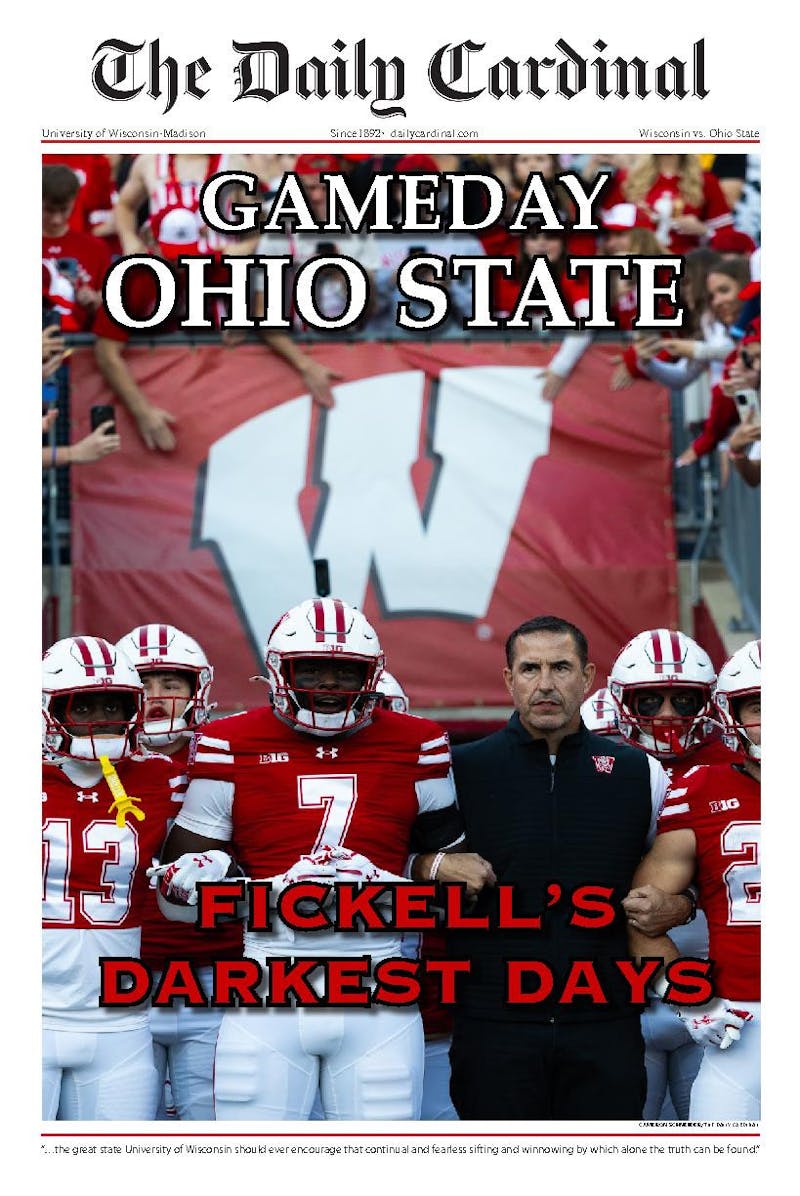News reports over winter break provided a flurry of headlines worth talking about, from the CIA torture report, gasoline prices falling to the lowest they’ve been in six years and President Obama restoring diplomatic relations with Cuba. All of these events possess a high level of significance, but none more-so than the terror attack in Paris Jan. 7 when two gunmen wearing masks and wielding assault weapons killed 12 people. Their target? A cartoon newspaper named Charlie Hebdo that prints satirical cartoons depicting the Muslim prophet Muhammad.
Why was it an issue that some French cartoonists published comic strips with the Muslim prophet Muhammad? The Koran, Islam’s holy scripture, does not explicitly forbid depictions of Muhammad but variants within Islam have different rules. Shia Islam, for example, has no ban regarding depictions of Muhammad while in Sunni Islam, the predominate ideology of Al Qaeda and ISIS, the ban does exist and is enforced. For most of us who have been born and raised under the First Amendment in the United States, we may groan at what can be interpreted as an inconsiderate depiction of another faith’s holy figure and may even sign a petition and protest for its removal. Herein lies the problem.
To say comedy and satire should be banned, restricted or prohibited because it upsets you or hurts your feelings is completely missing the mark on the principle of freedom of speech. Now, do not misunderstand my meaning, you do not have to agree with the hateful or vile remarks people make in print, radio, television or any other form of media, but you cannot claim to be a proponent of free speech while attempting to limit those you disagree with. Signing petitions to have people taken off the air is censorship, not defending free speech.
If you truly want to stop someone from having a platform to speak about things you disagree with, then stop talking about it. Case and point: Before the two men killed 12 people in Paris, the Charlie Hebdo cartoon had a circulation of 60,000 copies and was only published in French. After the attack, the cartoon sold-out a 7 million- copy print run in six different languages and the distributor, Messageries Lyonnaises de Presse (MLP), is struggling to keep up with demand.
It’s highly unlikely that more than 6 million people suddenly found Charlie Hebdo to be their style of humor, rather they are standing in solidarity with the Charlie Hebdo and against the attempted censorship by the terrorists. We’ve seen this type of response time after time when groups attempt to censor viewpoints they do not agree with.
For example, the movie “The Interview,” which was scheduled to release in late December of last year, was expected to have only average earnings in the box office. When North Korea’s leader, Kim Jong-un, threatened to use violence against movie theaters airing the film, many movie theater companies refused to show the film and Sony Pictures pulled the release. Many Americans, including the president, felt slighted by the movie theaters and Sony’s decision to not air the film. Following widespread backlash, Sony released the film online and it quickly became their number one online movie. North Korea’s desire to censor a film they disagreed with backfired and ultimately made the film more popular.
While Charlie Hebdo’s newfound popularity is likely to diminish in the coming months and years, the point has been made: The pen is mightier than the sword. Even when the two gunmen attacked Charlie Hebdo at the source, the cartoon still came back stronger than ever. As a testament to that fact, nearly four million people and over 40 world leaders marched in Paris in defense of freedom of expression.
As if the attack in Paris wasn’t bad enough, there are a number of people blaming the cartoonists for their own deaths. If you possess delicate sensibilities to the point where cartoons that offend you make you want to murder people, then it is not the cartoon that is the problem. Sir Salman Rushdie, a British-Indian writer who was targeted in 1989 by Ayatollah Khomeini for his book, “The Satanic Verses,” remarked after the Boston Marathon bombing, “This new idea—that writers, scholars and artists who stand against orthodoxy or bigotry are to blame for upsetting people—is spreading fast, even to countries like India that once prided themselves on their freedoms.”
Nearly two years before the attacks in Paris, and Rushdie predicted the response of many western news outlets. Notably the Financial Times and CNN both stated the cartoonists should have exercised more caution over what they published. With respect to remarks like those, I think it is important to maintain perspective on the scope of this attack. At its most basic level, 12 people died on Jan. 7 as a result of a cartoon. To blame the cartoonists and say that they had it coming is not only disrespectful, it’s dangerous. It is taking the blame away from the murderers and providing them with justification. No journalist, artist or scholar deserves a death sentence for carrying out their craft. You don’t have to agree with what they say, but you have to agree they have the right to say it.
Cullen is a senior majoring in history and political science. What do you think about his stance on free speech vs. censorship? Is there anything he is overlooking? We would like to hear from you. Please send all feedback to opinion@dailycardinal.com.




